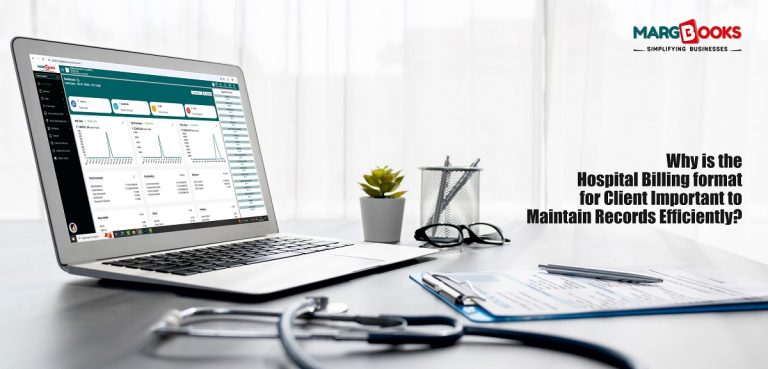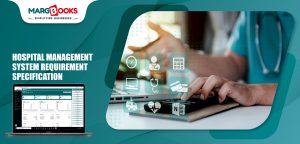The efficient management of patient records and billing processes is crucial for hospitals and clinics. One of the key elements in this ecosystem is the hospital billing format for clients, a structured way to document charges, payments, and other financial transactions related to patient care. But why exactly is maintaining a proper billing format so important? And how can integrating modern solutions like Healthcare retail chain software and Online Accounting software further improve this process?
Let’s dive deeper into the significance of the hospital billing format for clients and understand how it plays a pivotal role in smooth hospital operations.
What is a Hospital Billing Format for a Client?
A hospital billing format for client is essentially a template or structured document used by hospitals to record and present billing details to patients. It contains information such as:
- Patient details (name, ID, contact info)
- List of medical services provided
- Medicine and treatment charges
- Consultation fees
- Taxation and discounts, if any
- Payment method and status
This format ensures transparency between the healthcare provider and the patient, making billing clear and easy to understand.
Why Is It Crucial to Maintain a Hospital Billing Format for Client?
1. Transparency and Trust Building
Patients want clarity about the costs involved in their treatment. An organised billing format provides a detailed breakdown of all charges, avoiding confusion and disputes. When patients see a clear, itemised bill, it builds trust and confidence in the healthcare provider.
2. Legal Compliance and Accountability
Hospitals are subject to stringent regulations related to financial record-keeping and tax compliance through the online accounting software. Maintaining a standard billing format helps ensure that all transactions are properly documented and can be audited when needed. It reduces the risk of errors or fraudulent activities.
3. Efficient Record Keeping
Efficient records allow hospitals to track payments, manage outstanding dues, and maintain historical data on patient expenses. This becomes invaluable for financial forecasting, budgeting, and improving the hospital’s revenue cycle management.
4. Speeding Up Reimbursements
Insurance claims and reimbursements often require detailed billing documents. A proper billing format makes it easier to submit accurate claims to insurance companies, reducing delays and increasing the chances of claim approval.
How Modern Software Solutions Increase Billing Efficiency?
With evolving technology, many hospitals and healthcare chains are shifting from manual billing to automated solutions. Let’s explore how tools like Healthcare retail chain software and Online Accounting software can revolutionise billing formats and overall record maintenance.
Healthcare Retail Chain Software
This type of software is designed to manage the sales, inventory, and billing operations across multiple outlets of a healthcare retail chain pharmacies, medical equipment stores, etc. When integrated with hospital billing systems, it can:
- Automatically update medicine charges based on current inventory prices
- Ensure real-time synchronization between the hospital pharmacy and the billing departments
- Help maintain a unified billing format that includes medicine charges accurately
- Generate detailed reports for inventory management and billing reconciliation
Online Accounting Software
Online accounting software takes financial management to the next level by offering:
- Real-time tracking of hospital revenue and expenses
- Automated GST and tax calculations as per Indian tax regulations
- Easy generation of invoices and receipts using standardised billing formats
- Cloud storage of billing records for secure access from anywhere
- Integration with hospital ERP systems to streamline overall financial management
When hospitals use these tools in tandem, the hospital billing format for client becomes more dynamic, accurate, and easy to manage, saving time and reducing manual errors.
Key Benefits of Maintaining a Proper Hospital Billing Format
Let’s summarise the benefits in a quick list:
- Accuracy in billing and reduced human errors
- Clear communication with patients regarding treatment costs
- Faster insurance claim processing
- Better financial audits and regulatory compliance
- Improved cash flow through efficient payment tracking
- Integration with pharmacy and diagnostic centers for complete billing
Marg Books: Simplifying Hospital Billing and Accounting
For hospitals and healthcare providers seeking an all-in-one solution, MargBooks emerges as a reliable choice. MargBooks offers seamless integration of billing and accounting functions tailored for healthcare providers.
Some standout features of MargBooks include:
- User-friendly interface designed for healthcare billing formats
- Automated tax and GST calculations compliant with Indian laws
- Real-time inventory management, helpful for healthcare retail chains
- Cloud-based system ensuring data security and easy access
- Quick report generation and audit-ready record keeping
By adopting MargBooks, hospitals can ensure their billing formats are consistently maintained with accuracy and professionalism, facilitating better patient relationships and smoother financial operations.
Conclusion
The hospital billing format for client is not just a document but a cornerstone of effective hospital management. It ensures transparency, legal compliance, and smooth financial workflows. When combined with modern tools, including Healthcare retail chain software and Online Accounting software, it elevates the quality and efficiency of hospital billing and record-keeping.
For Indian hospitals aiming to streamline their billing process and maintain flawless financial records, leveraging solutions, MargBooks, can make a significant difference. It brings automation, accuracy, and ease, helping healthcare providers focus more on patient care and less on paperwork.




